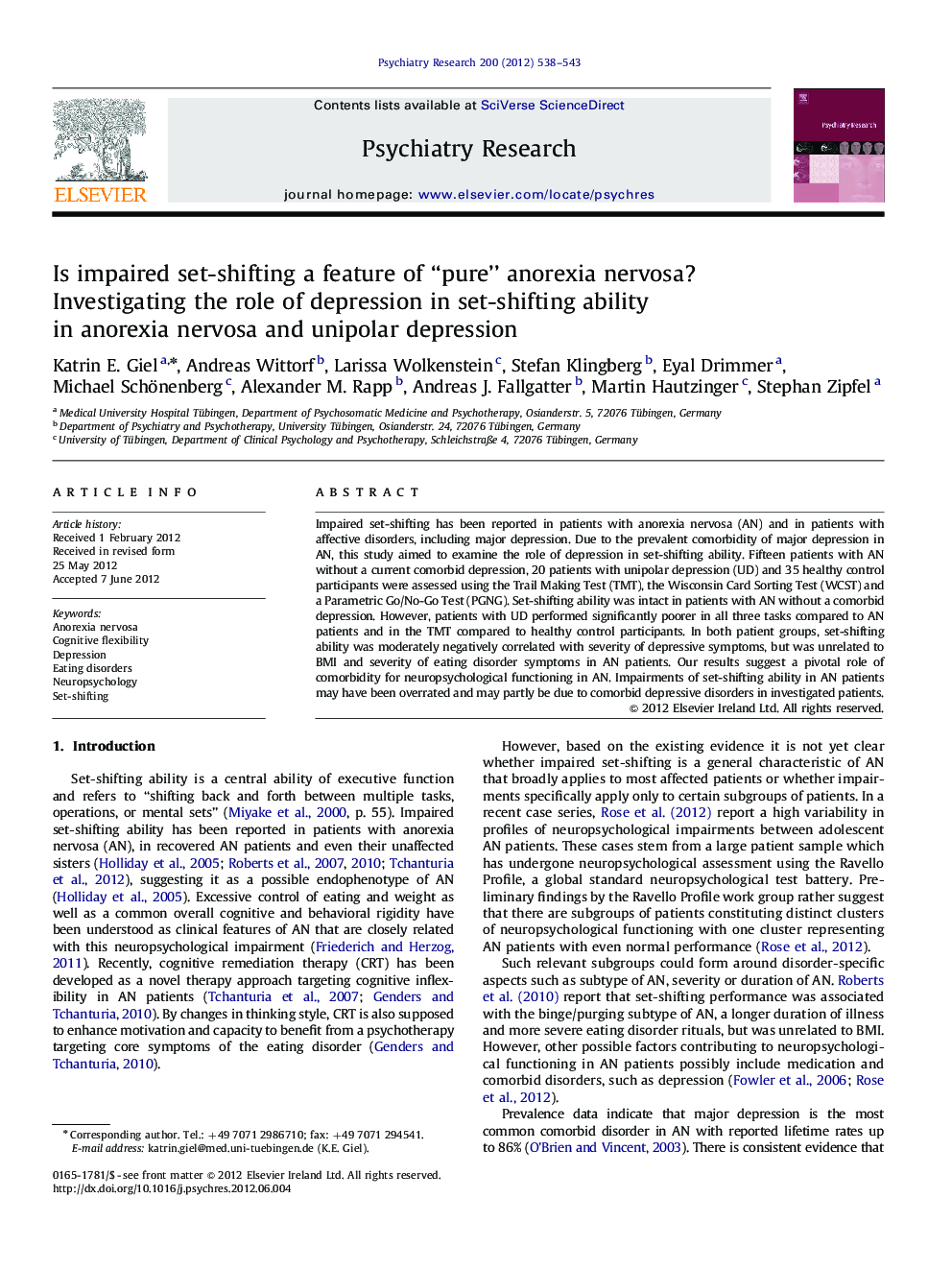| Article ID | Journal | Published Year | Pages | File Type |
|---|---|---|---|---|
| 6816097 | Psychiatry Research | 2012 | 6 Pages |
Abstract
Impaired set-shifting has been reported in patients with anorexia nervosa (AN) and in patients with affective disorders, including major depression. Due to the prevalent comorbidity of major depression in AN, this study aimed to examine the role of depression in set-shifting ability. Fifteen patients with AN without a current comorbid depression, 20 patients with unipolar depression (UD) and 35 healthy control participants were assessed using the Trail Making Test (TMT), the Wisconsin Card Sorting Test (WCST) and a Parametric Go/No-Go Test (PGNG). Set-shifting ability was intact in patients with AN without a comorbid depression. However, patients with UD performed significantly poorer in all three tasks compared to AN patients and in the TMT compared to healthy control participants. In both patient groups, set-shifting ability was moderately negatively correlated with severity of depressive symptoms, but was unrelated to BMI and severity of eating disorder symptoms in AN patients. Our results suggest a pivotal role of comorbidity for neuropsychological functioning in AN. Impairments of set-shifting ability in AN patients may have been overrated and may partly be due to comorbid depressive disorders in investigated patients.
Related Topics
Life Sciences
Neuroscience
Biological Psychiatry
Authors
Katrin E. Giel, Andreas Wittorf, Larissa Wolkenstein, Stefan Klingberg, Eyal Drimmer, Michael Schönenberg, Alexander M. Rapp, Andreas J. Fallgatter, Martin Hautzinger, Stephan Zipfel,
